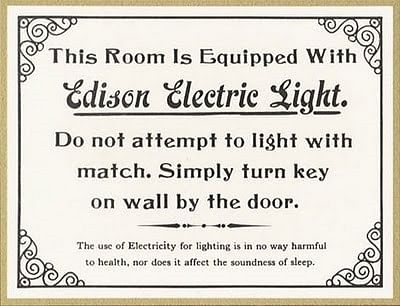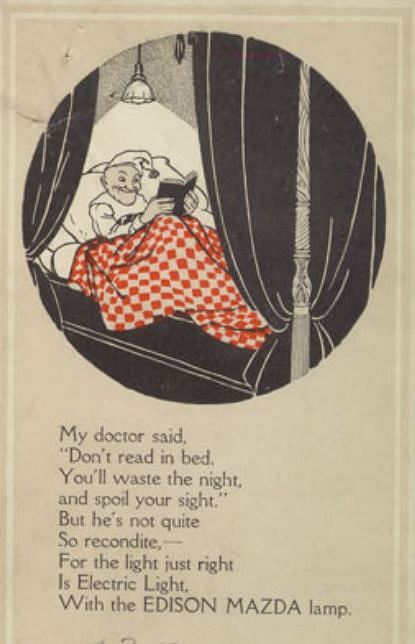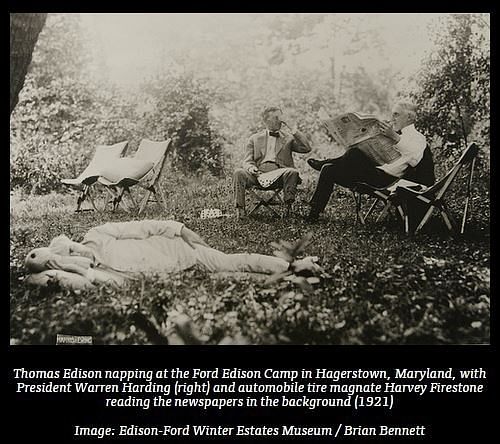
Recently I came across a news article about plans in New York city to switch off lights at night (LAN). http://luxreview.com/article/2015/05/new-york-mulls-nighttime-lighting-ban-for-40-000-office-buildings. It was heartening to read that article, but the reasoning for this move is an absurd one. For saving energy! If that is the case, it will not be long when some authority will talk about switching off lights even in daytime.
The real reason for switching off lights at night should be that it is beneficial to our health and that of our children. What we do not realize is the fact that light is an electromagnetic radiation from the sun.
Every photon of light that reaches our eye was born in the core of the sun and 'cooked' in the sun's core for millions of years before escaping the sun's surface. Though it takes only 8 minutes for every photon of light to travel from the sun's surface to earth, it takes millions of years for these photons to travel from the core to the surface. So every ray of light that we see today was created millions of years of ago and for every second we absorb this potent radiation through our eyes, skin and breath, we would only be increasing our health manifold.
In ancient times, we were under the sun for most of the day absorbing around 100000 units of light, every second. Even today, the same 100000 units of light is still shining outside but we are indoors under 500 units of light every second and trying hard to stay awake!
And at night we used to have only 0.1 unit of light and now are exposed to more than 200 units of light at night.
We are being herded into buildings, by fear mongers, scaring us about UV radiation. For centuries, farmers of every skin type and color have toiled under the sun without any adverse effects, because they slept well in the night, which helped the body repair itself of any damage from UV radiation. But today, there is a thriving economy of creams and cancers to prevent us from absorbing this life nourishing source. Lower lighting levels in the day and higher lighting levels at night is creating poor sleeping habits for many of our generations. Our poor sleeping habits, nowadays, are the main cause of health issues rather than being under the sun, as our body is unable to repair itself.
What did we do before the invention of electric lights? How did we welcome the invention of electric lights?
History is always distorted for political, religious and commercial compulsions of that time in history. In spite of Arctarius proposing a heliocentric model, with the earth rotating the sun, for more than 1500 years, the geocentric model, with the sun rotating the earth, was the belief system. And the supporters of heliocentric model like Kepler and Galileo were persecuted.

Our current belief system that light does not impact our health seems to be a similarly forced misconception. We had to be convinced that electrical lighting is not harmful to humans nor does it affect the soundness of sleep. The "Electric Light History" (http://www.iar.unicamp.br/lab/luz/ld/Hist%F3ria/Electric%20Lighting%20History.pdf) vividly captures this propaganda through decades, slowly making us believers in indiscriminate use of electrical lighting. After positioning the electrical light bulb as a replacement for the Sun through various ads, (refer the link above), finally, the use of light at night is promoted through this advertisement below.

I searched the meaning for "recondite", and in the context of the above ad, it means "incomprehensible to one of ordinary understanding or knowledge". A doctor is portrayed as a person of "ordinary understanding or knowledge" while the customer who is using the bulb to read a book in the night is portrayed as an intelligent person. Fast forward this belief system to our current day and we do not even think twice, when we switch on a light at night (LAN).
Being a lighting consultant, I do understand the contribution of electrical lighting to the prosperity of many generations. But what is disturbing is the fact that we were made to believe that lights at night (LAN) is not harmful for our health and that artificial light is a true replacement for natural sunlight. Every research is implicating inappropriate lighting levels and color tones at inappropriate time of the day and night as the main cause of many of our lifestyle diseases like obesity, stress, ADHD, depression, diabetes, heart problems etc.
In spite of knowing intuitively from 1900s that light affects our circadian clocks and sleep, we have continued to use light only to light up our tasks, completely ignoring its impact on our sleep and health.
Notable among many researchers who argued against the use of light at night (LAN), is Dr. Charles Czeisler, who is a Baldino professor sleep medicine at Harvard medical school, sleep consultant to NASA, CIA among other positions. He testified in the Michael Jackson death case that, loss of sleep over 60 days could have eventually proved fatal for the singer. http://edition.cnn.com/2013/06/21/showbiz/jackson-death-trial/
In his article in May 2013 issue of Nature, Dr. Charles Czeisler says, "It is time to reassess the early assurances of Thomas Edison that using electric light “is in no way harmful to health, nor does it affect the soundness of sleep”.
I was curious about the time when electric lighting could have proved to be too important for political and commercial reasons. It is during this research that I came across the electric lighting history pdf and other resources. I also chanced upon this below picture.

Edison is supposed to have remarked several times about the time we waste in sleeping. Though he worked late nights, he also seems to have had 2 power naps of 2 hours each during the daytime. Looking at the body language of these three personalities, lots of conspiracy theories were running through my mind, but I prefer to keep it to myself. It is not fair to judge them from a single photo and I am not a body language expert. You draw your own conclusions.
What matters most is the fact that most of us cannot afford two power naps in the day, that the inventor of electric bulb could afford. So, most of us reach out to coffee or energy drinks to drive away our sleep deficit only to add fuel to the fire.
It is in this context that the decision to switch off lights at night in buildings seems to be a step in the right path. I hope that as a society, we respect our biological day and night and plan our activities accordingly.
This is possible, even for shift workers, when they create a lighting stimulus around them, which signals the time of the day and night, but in reverse. Just like being someone on the other side of the earth. There could be several offices and hospital that need to work at night, penalizing them for using lights at night for wasting energy, would be downright hilarious.
Instead, educating people to avoid inappropriate lighting conditions at inappropriate times of the day and night could prove effective and beneficial to all stakeholders.
So, go New York! Lead the world.
What do you think? Share your comments below.
___ ___ ___
I aim to spread awareness on the subject of Healthy Lighting designs to facilitate co-creation of healthy lighting at home, work and other social spaces. My posts can be accessed at Archinect and Linkedin Group. I also have a self published book "Healthy Lighting of your Homes" at Amazon.
This blog would attempt to cover basic design factors typically considered in lighting design. In 1998, i was asked about the material of the filament inside the incandescent bulb, for which i did not have a clue, at that time. I am an engineer and i have the aptitude to learn the subject is what i told the interviewer and surprisingly, got into the lighting industry! Perhaps it is that shameful ignorance that gave me a voracious appetite to proactively seek, learn and understand lighting.
7 Comments
I'm not skeptical of the idea of interrupted circadian rhythms being detrimental to health, but can you link to any scientific articles showing a connection between excess exposure to artificial lighting and a lessened ability for the body to repair itself?
A connection between lack of sleep and overall health seems pretty well verified, but exposure to light specifically inhibiting the body's ability to repair itself seems pretty much like woo. Especially since "repair itself" is such a vague term.
Dear Donna
Thanks for the comment.
I believe, you are referring to this sentence - "Our poor sleeping habits, nowadays, are the main cause of health issues rather than being under the sun, as our body is unable to repair itself."
I tried to communicate the following three points:
- A good night's sleep can repair our body.
- Lower lighting levels in the day and higher lighting lighting levels in the night is affecting our sleep quality. Lower and higher in the context of the lighting levels we were used to before even the invention of gas lamps, 100000 lux in the day and 0.1 lux in the night.
- We should have a balance in exposure to light and exposure to darkness. This would depend on where you live in relation to the equator.
I am sure you agree on these points. I don't know where to start for showing you scientific articles, as there are too many of them which support these three points. Request you to search for the works of Dr. Czeisler and Russell foster, and you will have enough data to support these facts.
I have also listed every scientific study that i came across linking the impact of light on our sleep and other circadian responses in my Facebook page https://www.facebook.com/healthylighting
Hope i could clarify your doubt.
Probably this could be a starter. A presentation by Steven lockley of Harvard Medical School on "Light pollution and Sleep".
https://vimeo.com/12672673
@Donna to quote from this link re: some of Dr. Czeisler research,
"After subjecting 26 volunteers to seven nights of insufficient shut-eye followed by a marathon all-nighter, researchers detected changes in the way hundreds of genes were expressed in their bodies. Some genes, including damage-inducing ones involved in stress reactions, were amplified. Others, including many that nurture and renew cells and tissues, were turned down".
So if one assumes light pollution affects sleeps then not a big leap to his general point...although may be stretching the "direct" connection just a bit...
Did Edison and co have any scientific research and documentation to support their ads that electric lighting or light at night does not affect sleep.....
Thanks for that Nam. I'm not asking so much about the relationship of sleep to health; I'm wondering if extended exposure to artificial light has a similar affect to lack of sleep, regardless of light exposure. What I don't see referred to in that article is whether the test subjects were not allowed to sleep by being subjected to artificial light, or whether they were allowed to be awake but in a dark room.
The presentation by Steven Lockley of Harvard Medical School (vimeo link above) explains the impact of artificial light on our sleep, also covering the test conditions.
Enough exposure to sunlight in the day, food and exercise determine the amount of serotonin levels released in our body. Serotonin is converted into melatonin when our body senses the onset of darkness.
If there is less serotonin, or poor conversion of serotonin to melatonin or light preventing the conversion of serotonin to melatonin can affect our sleep.
I have explained this process in one of my previous posts http://archinect.com/lightingdesign/chapter-2-natural-clocks
Some more:
http://www.ncbi.nlm.nih.gov/pmc/articles/PMC2761596/
http://ajpregu.physiology.org/content/277/6/R1598
Block this user
Are you sure you want to block this user and hide all related comments throughout the site?
Archinect
This is your first comment on Archinect. Your comment will be visible once approved.